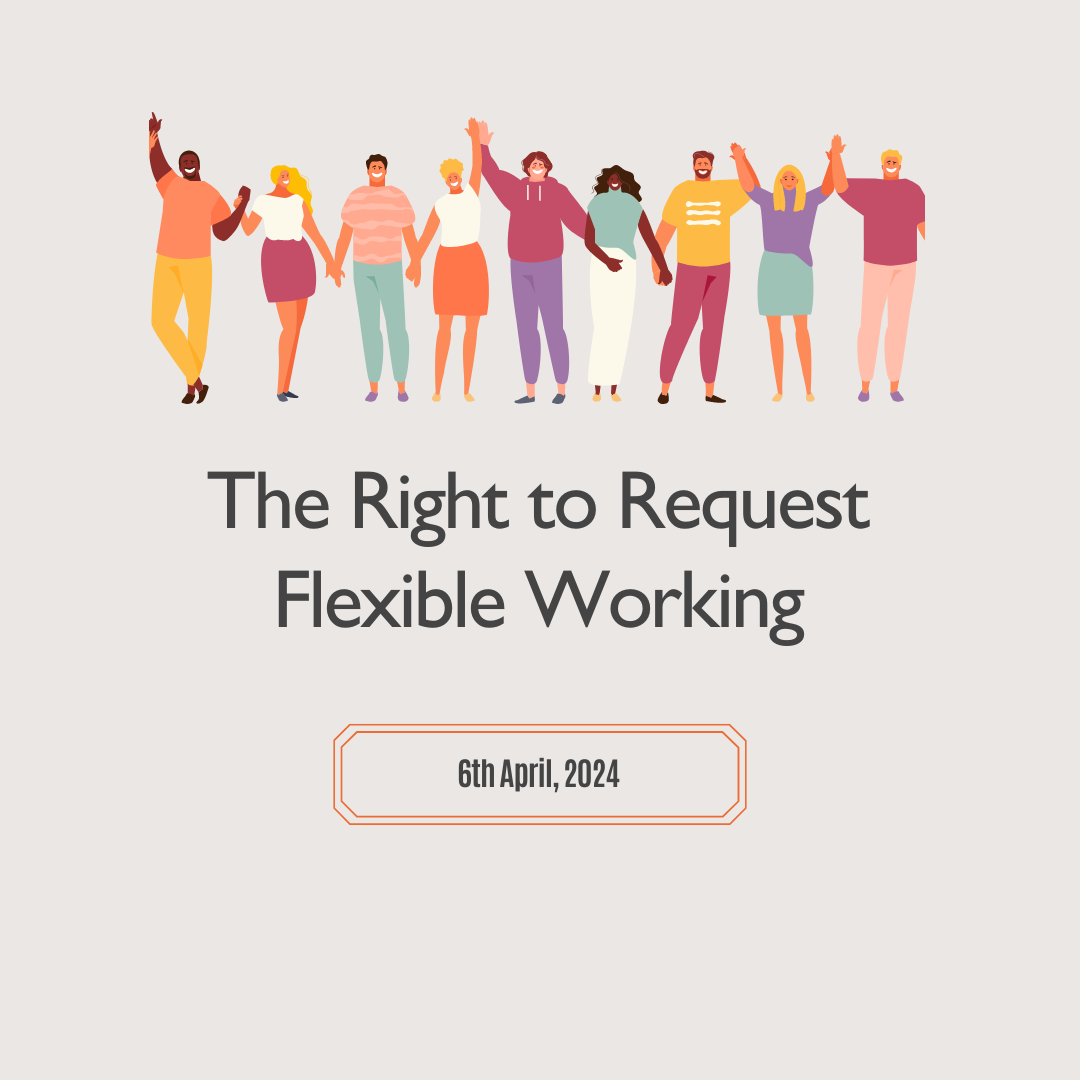The right to request flexible working is set to undergo a significant expansion comes into effect 6 April 2024. Employees will be entitled to request flexible working arrangements from day one of their employment, removing the previous requirement for 26 weeks of continuous service. This change aims to promote a better work-life balance and accommodate diverse needs within the workforce.
What does this mean for employers?
Flexible working’ encompasses various working patterns and hours, such as part-time, flexitime, term-time, compressed hours, and adjustments to start and finish times. It also extends to different work locations, such as remote work from home.
The time frame for considering flexible working applications will be reduced from three months to two months.
Employees will now have the opportunity to make two requests within a 12-month period, as opposed to the current allowance of a single request.
There will no longer be a requirement for employees to provide explanations regarding the potential impact of their request on the employer or how any resultant effects might be managed.
Updates to Flexible Working Polices
In light of the upcoming changes, employers must review and update their flexible working policies to ensure compliance with the new regulations. This may involve revising existing policies, providing training to managers, and communicating changes effectively to employees. By proactively addressing these updates, employers can minimise the risk of non-compliance and create a more inclusive work environment.
Maximise the Benefits of Flexible Working
Embrace a Culture of Flexibility:
Flexible working is not just about complying with legal requirements; it’s about fostering a culture of trust, autonomy, and empowerment within the company. Encourage managers to embrace flexibility and focus on outcomes rather than micromanaging employees’ schedules. By empowering employees to take ownership of their work and schedules, employers can unlock the full potential of flexible working arrangements.
Prioritise Employee Well-being:
Flexible working should prioritise employee well-being and work-life balance. Encourage employees to set boundaries between work and personal life, take regular breaks, and prioritise self-care. Provide resources and support to help employees manage stress, maintain healthy habits, and navigate the challenges of remote work effectively.
Promote Inclusivity and Accessibility:
Ensure that flexible working policies are accessible and inclusive for all employees, including those with disabilities or caregiving responsibilities. Consider offering alternative arrangements, such as flexible hours or job sharing, to accommodate diverse needs and preferences. By promoting inclusivity and accessibility, employers can create a more equitable and supportive work environment for all employees.
Questions to consider:
- How will the reduced time frame for considering flexible working applications impact our HR processes and timelines?
- Are our managers adequately trained to handle an increased volume of flexible working requests, now that employees can make two requests within a 12-month period?
- How can we ensure that our flexible working policies remain fair and equitable for all employees, considering the removal of the requirement for employees to explain the impact of their request on the employer?
- What strategies can we implement to effectively communicate the changes in flexible working policies to our employees?
- Are there any adjustments we need to make to our technology infrastructure or remote work policies to accommodate an increase in remote working arrangements?
- How can we monitor and evaluate the success of our flexible working policies in light of these changes?
- Are there any specific industries or departments within our organisation that may be more affected by these changes, and how can we address any unique challenges they may face?
- How can we leverage the changes in flexible working regulations to attract and retain top talent in our organisation?
Conclusion:
As the landscape of work continues to evolve, flexible working has emerged as a cornerstone of modern employment practices. The upcoming employment law changes in April 2024 represent a significant opportunity for employers to embrace flexibility, adapt to new regulations, and prioritise employee wellbeing and satisfaction.
If you have any questions or need assistance in updating your flexible working policies, HR Delivered is here to help. Contact us today to learn more about our HR consulting services and support.




